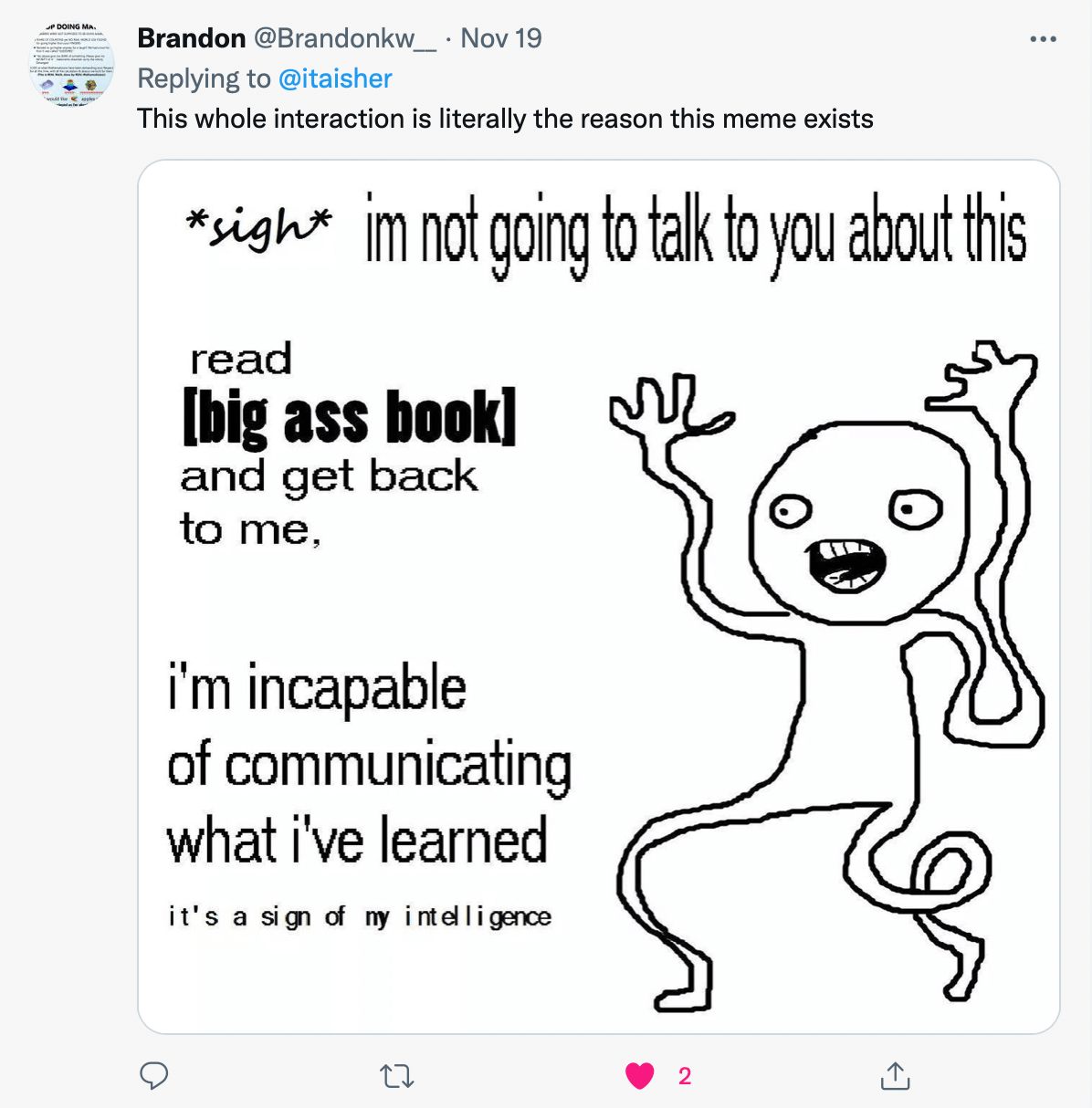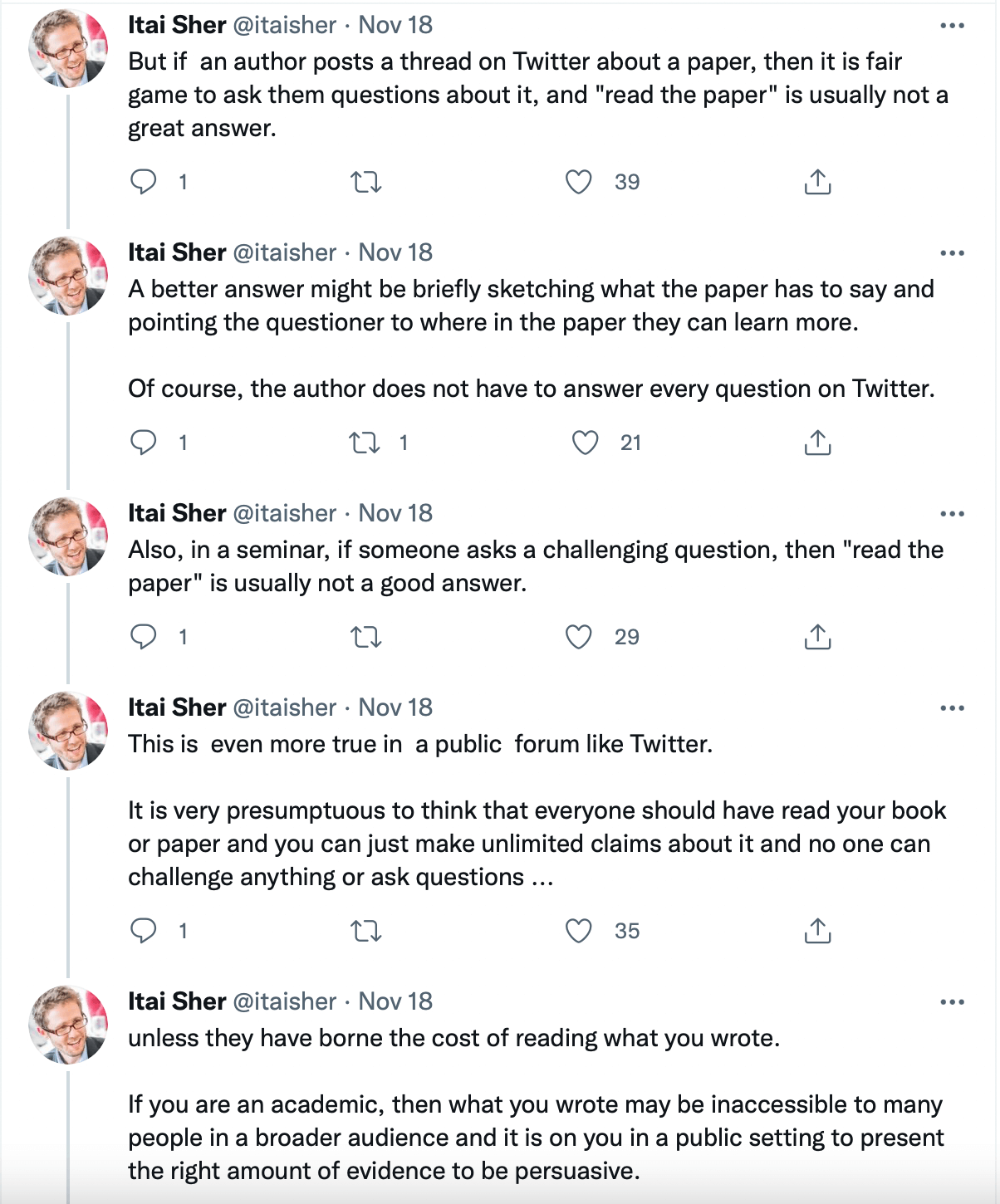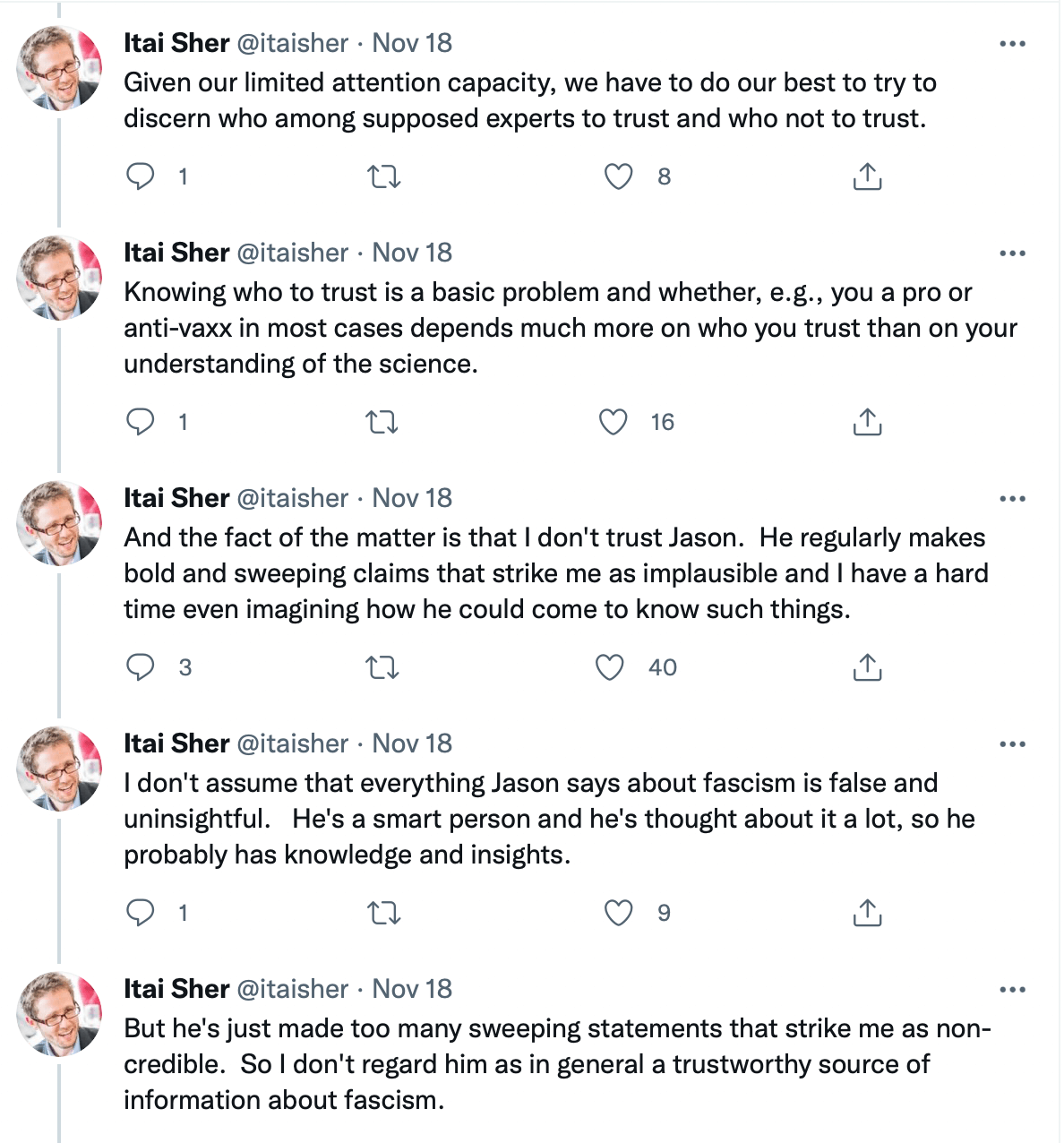’Read the Paper’ is Not a Public Expert’s Answer
TL;dr
The economist and ethicist Itai Sher took issue last week on Twitter with philosopher Jason Stanley’s assertion (on Twitter) that “Fascism is always popular.” Sher asked (on Twitter) for evidence justifying the claim; Stanley replied (on Twitter) “it’s the main point of my entire body of work on the topic.” Things escalated, as these things do on Twitter, and Stanley blocked Sher, which of course just fanned the flames.
The two apparently have a history (on Twitter), and I can’t begin to adjudicate whether Stanley’s assertion is justified or whether Sher has treated Stanley badly on Twitter. But I do agree with the generic argument of Sher’s subsequent thread that, while we should give experts some deference, that deference should not be unlimited and experts who make assertions in public fora should be expected to back up those assertions at least minimally and not allowed to play the trump card of “Read my book” or “Read the paper” when challenged.
“It is on you in a public setting to present the right amount of evidence to be persuasive”…they don’t make gravestones big enough for that long a quote, so I guess I’ll just have to buy a double-wide.
It might be that asking public experts to justify sufficiently their public expertise would cut down on the size of their assertions — and that might not be a bad thing. Not as a matter of modesty, but one of maximizing trust in expertise. The most interesting part of Sher’s thread to me is that Sher says (as I have) that we decide which public experts to trust as a proxy for understanding the science or research that is inaccessible to us, and the experts we trust are those who have embodied for us the heuristics of expertise — such as providing evidence and argument for even your sweeping assertions.
Of course all this is subjective. It's trust, after all.






